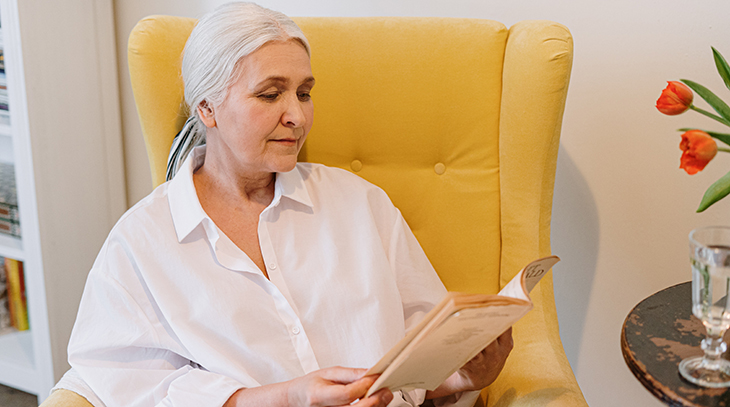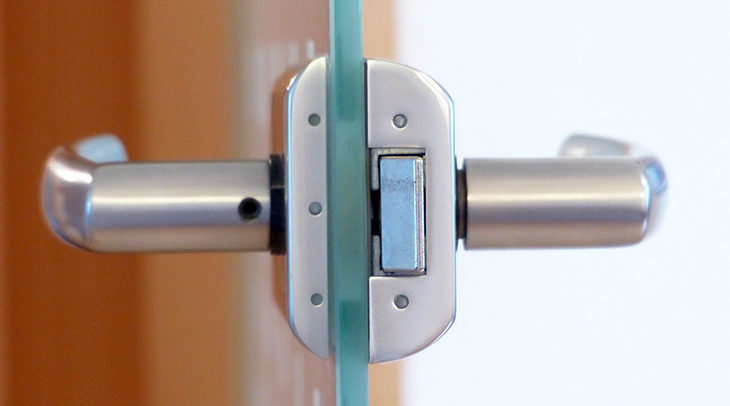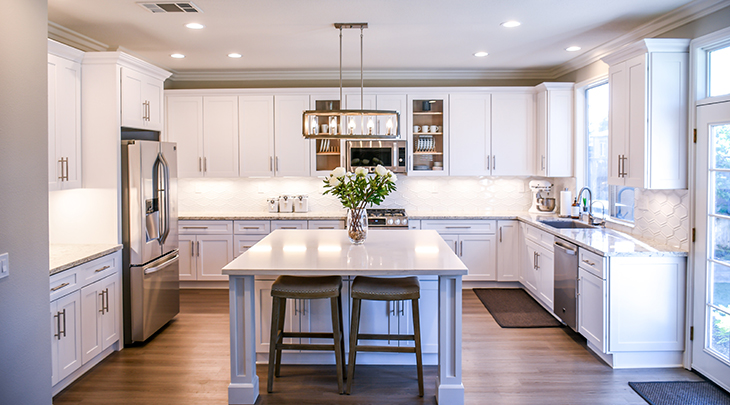Smart Hacks for Adapting A Home As You Age
The majority of older homeowners want to stay in their house for as long as possible. Unfortunately, most houses do not offer adequate functionality to support the needs of older adults.
 (Photo by cottonbro from Pexels)
(Photo by cottonbro from Pexels)
Inability to continue to lead an ordinary life is the main reason why many seniors choose to go to a retirement residence instead of spending their best days in their family home.
Luckily, there are numerous ways to transform a house to make it more accessible. Whether you’re looking ahead for yourself or concerned for an elderly friend or family member, start thinking about adaptations and investing in small makeovers to make independent home life easier and safer for an older adult.
Replace the doorknobs
Growing older brings inevitable physical changes, such as reduced agility. You may find that it has become a lot harder to turn a doorknob or pull heavy doors open or closed when you need to enter or exit your home.
Using keys can sometimes be a challenge, which is why you should think about investing in a push-button lock. Another option is to find a hands-free door opener that will make entering your house a lot easier.
 (Photo: Hans Braxmeier from Pixabay)
(Photo: Hans Braxmeier from Pixabay)
Make some changes in the kitchen
Think about the height of your kitchen counters, cupboards, and storage shelves. These could negatively affect your everyday life if reaching up or down for objects becomes a struggle or a safety concern in future. You may wish to modify your kitchen to avoid current or future issues.
Instead of using racks and cupboards for storing goods, you can re-organize those spaces and/or invest in alternatives that put most-used items within easy reach.
 (Kitchen Cupboards Photo: Mark McCammon via Pexels)
(Kitchen Cupboards Photo: Mark McCammon via Pexels)
Use lower shelves for storing dishes and utensils, and make space for dry food staples on the counter. Instead of using heavy pots to cook with, and glass or ceramic storage jars to store food, replace them with lighter-weight cookware and containers. Ensuring you’ll still be able to prepare and cook meals, even if you lose some dexterity, is an important element in maintaining the independent lifestyle you enjoy today.
Cover slippery floor surfaces
Slipping is one of the most common accidents that befall older people. When a younger person trips and falls, in most cases, they don’t need more than a month to recover. Older adults are more prone to “slip, trip, and fall” accidents, and once they occur, it’s much harder to treat them and avoid serious consequences. Recovery takes longer because broken bones need more time to heal. Slips and falls occur most often in the kitchen or bathroom.
Purchase a large anti-slip mat to cover the floor in your kitchen. Whenever you cook, some amount of oil will inevitably end up on the floor. You shouldn’t have to worry about slipping while you spend time in the kitchen. An anti-slip mat is also handy in the bathroom, as tiles are particularly slippery when wet. Attention to such small details can contribute quite a bit to your home’s safety.
Adapt your bedroom
Bedrooms in two-story houses are usually located upstairs. To avoid fatigue and strain on knee and hip joints from navigating stairs a few times a day, move your bedroom to the first floor. Ask someone to help you transfer clothes and furniture to your new room. Ideally this bedroom will be closest to the bathroom.
If you want to keep your bedroom on an upper floor, you’ll eventually need to make more drastic changes. You can install more stable handrails to help with posture and balance as you go up or down the stairs. To eliminate the physical strain and potential danger of climbing up or down stairs, find a stair lift company and have a stair glider installed.
Conclusion
Staying in your home where you can be with your family as you age is not always the best option, because retirement residences and long-term care homes may be able to offer enhanced amenities and take better care of you.
However, doing your best to enable continued comfortable and safe independent living in your home is of the utmost importance, especially if you’re still physically and mentally active. If this is your situation, making changes in your home to prevent injuries is the most responsible approach. Ask your family members to help you determine what safety solutions are the best options for you.
Contact a contractor to discuss renovations if necessary, and ask your doctors for advice on the necessity of changes and adaptations.
Take your health today and in future seriously and do whatever you can now, to ensure a long, healthy life.
You may also enjoy these related articles:
Technology Can Help You Age in Place
*This article is for informational purposes only and is not intended as medical or mental health advice, nor is it a substitute for professional medical or mental health advice, diagnosis, or treatment. Always seek the advice of a qualified physician or mental health provider with any questions you may have regarding your health situation. Neither is this article intended to provide advice about home renovation or modifications. 50+ World does not not recommend or endorse any specific products, procedures, opinions, or other information that may be mentioned on the Site or on other websites it links to. Reliance on any information provided by this website article or other websites it links to, is solely at your own risk.*
